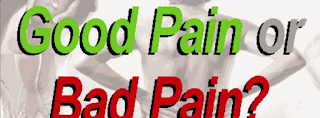06/30/2018
Matthew 8:5-17 When Jesus entered
Capernaum, a centurion approached him and appealed to him, saying, "Lord,
my servant is lying at home paralyzed, suffering dreadfully." He said to
him, "I will come and cure him." The centurion said in reply,
"Lord, I am not worthy to have you enter under my roof; only say the word
and my servant will be healed. For I too am a man subject to authority, with
soldiers subject to me. And I say to one, 'Go,' and he goes; and to another,
'Come here,' and he comes; and to my slave, 'Do this,' and he does it."
When Jesus heard this, he was amazed and said to those following him, "Amen,
I say to you, in no one in Israel have I found such faith." And Jesus said
to the centurion, "You may go; as you have believed, let it be done for
you." And at that very hour his servant was healed. Jesus entered the
house of Peter, and saw his mother-in-law lying in bed with a fever. He touched
her hand, the fever left her, and she rose and waited on him. When it was evening, they brought him many
who were possessed by demons, and he drove out the spirits by a word and cured
all the sick, to fulfill what had been said by Isaiah the prophet: He took away
our infirmities and bore our diseases.
The most natural thing in the world
is that sooner or later you will get hurt and feel some pain. Perhaps you will
fall off your bike and break a leg, or be in a car accident, or someone will
slander your reputation, or someone you love will fall sick or die. Pain is a
part of life. And what’s also very normal and natural is we try to alleviate or
avoid the pain. Archbishop Fulton Sheen recalled when he had a toothache as a
little boy he would always run to his grandmother never to his mother. His
mother would take him to the dentist, who often inflicted more pain, but his
grandmother rubbed some soothing oil on the tooth and gums and the pain
subsided, at least momentarily. A multi-billion dollar prescription drug
industry flourishes in the United States to help Americans manage their pain.
But in the end, we just want someone to make the pain go away, like Fulton
Sheen’s grandmother did for him.
The pursuit of pain relief is not
an exclusively American predicament; the first century Jews also sought pain
relief. Matthew recounts the numerous times Jesus healed people, and soothed
their pain: the Roman Centurion’s servant, Peter’s mother-in-law, many
possessed by demons and others who were sick. But what I find curious is not so
much what Jesus did, but what he did not do. Surely there must have been
millions of people throughout the world at the same time suffering untold
maladies and disorders and he could have healed them with a snap of his sacred
fingers. But Jesus did not do that. Jesus’ behavior was not like that of Fulton
Sheen’s grandmother, but rather like that of his mother. In other words, like a
wise mother that knows a little pain is necessary to heal a bigger problem
(like cavities), so Jesus allows some physical pain so that we might be healed
spiritually (like from sin). Indeed, our prayer life is never more passionate
or purposeful than when we are in pain.
Please don’t misunderstand me or
jump to conclusions that I’m advocating inflicting pain or enduring pain for
the heck of it. God wants us to be happy and healed and whole, and he does not
want to see us suffer. But sometimes a little pain and discomfort can have a
higher purpose. Consider a few examples. Enduring a little hunger pain can help
you lose weight because you avoid eating unhealthy snacks. Occasionally, not
taking a pain reliever at the first hint of a headache allows the body to
adjust naturally to discomfort and overcome it. We can also endure pain for the
sake of others. Catholic parents used to advise their children who underwent
unpleasant experiences, “Offer it up!” If I stub my toe at the end of the bed
while making my bed in the morning, I exclaim, “Praised be Jesus Christ!”
instead of an obscene expletive. St. Josemaria Escriva, the founder of Opus
Dei, often urged his followers to make little unnoticed sacrifice, like sitting
up straight in their chair instead of slouching. It’s good for the body and the
soul! There is nothing more natural than seeking pain relief, but enduring a
little pain can also prove more healthy for the body and the soul.
M. Scott Peck opened his
best-selling book called The Road Less Traveled with these daring lines: “Life
is difficult. This is a great truth, one of the greatest truths. It is a great
truth because once we truly see this truth, we transcend it. Once we truly know
that life is difficult – once we truly understand it and accept it – then life
is no longer difficult. Because once it is accepted, the fact that life is
difficult no longer matters.” In other words, approach pain like your mother
might, not like your grandmother might (no offense to grandmothers).
Praised be Jesus Christ!

No comments:
Post a Comment